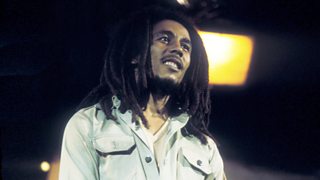The Weavers at Carnegie Hall
Paul Gambaccini relives Christmas Eve 1955 and the Weavers sell-out reunion concert, 3 years after Pete Seeger's blacklisting for communist sympathies had forced them to break up.
Paul Gambaccini is back with the award-winning series to re-visit two occasions when a classic live album was recorded. He hears from those who were there, on-stage, backstage and in the audience, to re-create the event for all of us who, each time we play the album, think: 'If only I could have been there'.
Paul Gambaccini re-lives Christmas Eve 1955 and The Weavers reunion concert at New York's prestigious Carnegie Hall. Three years after Pete Seeger's blacklisting for communist sympathies had forced the highly successful folk group to break up because no one was playing their records and no venues would book them, their manager Harold Leventhal took a risk and booked the only venue that would take them: There were queues round the block and the concert was a sell-out.
In the company of Pete Seeger himself and the other two surviving Weavers, Ronnie Gilbert and Fred Hellerman, Paul hears about the birth of The Weavers in the radical home of folk music and left-wing politics that was 1940s Greenwich Village. With their early number 1 hits: 'Goodnight Irene' and 'Tzena, Tzena', The Weavers reached beyond the 'purist' folk movement into the mainstream. Gino Francesconi, Carnegie Hall's Archivist, finds the programme and poster from the 1955 concert, which became a best-selling album after it was released two years later, by Vanguard. Previously an exclusively classical label, this was the album which would make Vanguard the leading folk label of the 1960s.
Also in this series of For One Night Only: 'Clapton Unplugged' (1992)
Producer: Marya Burgess.
Last on
More episodes
Previous
Broadcasts
- Sat 13 Oct 2012 10:30麻豆社 Radio 4
- Tue 29 Jan 2013 11:30麻豆社 Radio 4
Featured in...
![]()
Folk on 4
A selection of programmes relating to folk music from the Radio 4 archives.



